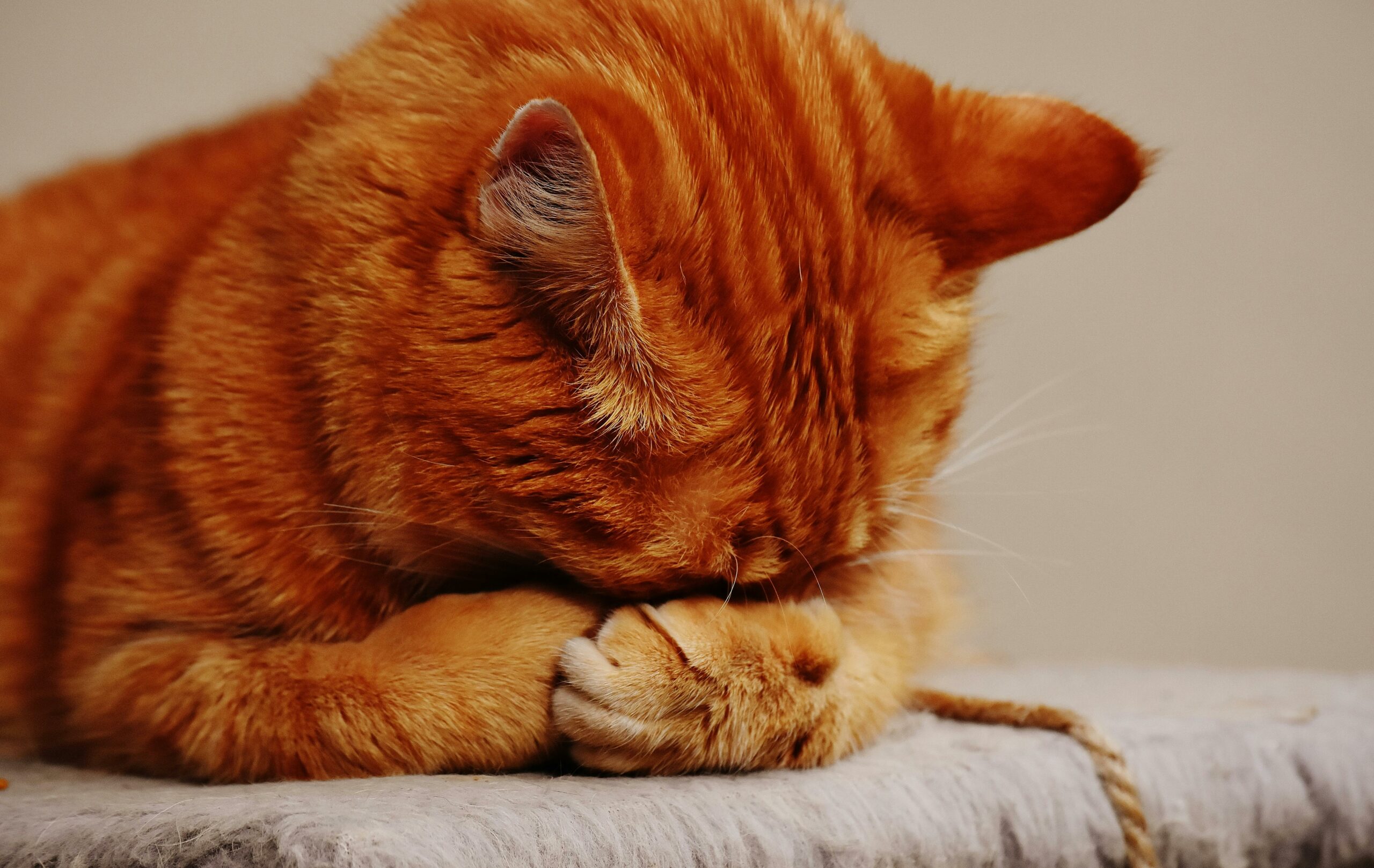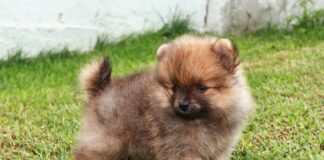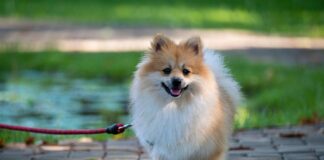As cat owners, we all know that kittens are playful, curious, and often full of surprises. However, when a kitten regurgitates hair, it can be alarming and distressing for any pet parent. While it may be a common occurrence in cats, it’s important to recognize when it becomes a cause for concern and how to address it properly. This article will explore why kittens regurgitate hair, what it means for their health, and when urgent help is needed. We will also discuss practical tips on how to help your kitten avoid hair regurgitation in the future and ensure they stay healthy.

1. Understanding Hairballs in Kittens
Hairballs, also known as “trichobezoars,” are a common occurrence in cats, including kittens. Hairballs form when a cat’s grooming process causes them to ingest hair. Cats have specialized grooming tools— their tongues, which are covered with tiny, backward-facing barbs (papillae)— that help remove dirt, loose fur, and debris from their coat. However, as a cat grooms itself, it swallows the loose fur, which can accumulate in the stomach.
In many cases, the hair is passed through the digestive system without issue, but sometimes, the hair becomes too much to handle, and it forms a solid mass or ball that the cat needs to regurgitate. Kittens, in particular, may be more prone to regurgitating hairballs due to their curious and energetic nature, which often leads them to groom themselves excessively.
While hairballs are a natural byproduct of a cat’s grooming habits, they can still pose health risks if they are not addressed properly.
2. Why Do Kittens Regurgitate Hair?
Kittens, like adult cats, regularly ingest hair during grooming. However, because their digestive systems are still developing, they may not be able to handle the excess hair as efficiently as adult cats. This can lead to the formation of hairballs, which need to be regurgitated. There are several factors that can contribute to the regurgitation of hair in kittens:
A. Excessive Grooming
Some kittens may groom themselves excessively, particularly if they are feeling stressed, anxious, or bored. Over-grooming can lead to an increased amount of hair being ingested, which increases the chances of hairballs forming in the stomach.
B. Shedding Seasons
Kittens, like adult cats, shed their fur in cycles. During shedding seasons, kittens may lose more hair than usual, leading to a higher likelihood of ingesting more hair. This can contribute to hairballs forming and being regurgitated.
C. Poor Diet and Malnutrition
A poor or unbalanced diet may lead to coat health problems, including excessive shedding. Kittens who do not receive the necessary nutrients may have weaker or thinner fur, which can increase the amount of hair they shed and ingest. This can result in more frequent hairballs.
D. Hairballs in Long-Haired Breeds
Kittens with long fur, such as Persians, Maine Coons, and Ragdolls, are more likely to develop hairballs due to the increased amount of fur they shed. Long-haired kittens often have more grooming work to do and, as a result, may ingest more hair.
E. Medical Conditions
In some cases, hair regurgitation may be caused by underlying medical issues, such as gastrointestinal problems or inflammatory conditions. These medical conditions can cause a kitten’s stomach to struggle with the digestion and passage of hair, leading to more frequent regurgitation.
3. Is Hair Regurgitation in Kittens Normal?
Regurgitation of hair in kittens is generally normal, especially during periods of shedding or if the kitten is grooming excessively. However, there are instances when regurgitating hair becomes problematic. If your kitten is frequently vomiting hairballs or showing other signs of distress, it may indicate an underlying health problem.
Some kittens may vomit more than once a day, which can lead to dehydration and weight loss. It is important to monitor the frequency and severity of hairball regurgitation and seek veterinary help if necessary.
4. When to Seek Urgent Help for Hair Regurgitation in Kittens
While occasional hairball regurgitation is a normal part of life for most kittens, there are situations where it is important to seek urgent help. You should contact a veterinarian if you notice any of the following:
A. Frequent or Chronic Vomiting
If your kitten is vomiting hairballs frequently, more than once a week, it may be a sign that they are unable to pass the hair through their digestive system properly. Excessive vomiting can lead to dehydration and can be harmful to their overall health.
B. Blood in the Vomit
If your kitten’s vomit contains blood or looks dark and resembles coffee grounds, it may indicate that there is an injury in the gastrointestinal tract, which could be caused by excessive hairball regurgitation or another medical issue. Blood in vomit should always be taken seriously and requires immediate veterinary attention.
C. Lack of Appetite and Weight Loss
A kitten that is vomiting hairballs regularly may develop a loss of appetite or have difficulty keeping food down. This can lead to weight loss and poor growth, which can negatively impact their overall health and development. A lack of appetite in conjunction with hairball regurgitation may indicate gastrointestinal issues.
D. Difficulty Breathing or Coughing
If your kitten seems to be having trouble breathing or coughing in addition to vomiting hairballs, it could indicate a respiratory issue. Hairballs can sometimes become lodged in the esophagus or airway, which can lead to coughing, gagging, or difficulty breathing. This situation requires immediate veterinary attention.
E. Lethargy or Behavioral Changes
If your kitten seems unusually tired, lethargic, or has behavioral changes such as irritability or reduced playfulness, it may be a sign of an underlying health problem. Frequent regurgitation of hairballs can lead to dehydration, which can cause a kitten to become more lethargic.
5. How to Help Your Kitten with Hairball Issues
If your kitten is regurgitating hairballs, there are several ways you can help reduce the frequency and severity of the problem.
A. Regular Grooming
Regular grooming is essential, especially for kittens with long fur. Brushing your kitten’s coat helps remove loose hair before they can ingest it during grooming. Use a soft, kitten-friendly brush to avoid causing irritation to their sensitive skin. Brushing also helps reduce the amount of shedding, which can decrease the likelihood of hairballs forming.
B. High-Quality Diet
Ensure that your kitten is eating a high-quality, balanced diet that supports healthy coat growth. Look for kitten food that is rich in omega-3 and omega-6 fatty acids, which can promote healthy skin and fur. A healthy diet can reduce excessive shedding and improve your kitten’s overall coat health.
C. Hairball-Reducing Supplements
There are several over-the-counter supplements and treats designed to help reduce hairballs in cats. These products often contain ingredients like fiber, which helps hair pass through the digestive system more easily. Consult with your veterinarian before using these products to ensure they are appropriate for your kitten’s specific needs.
D. Hydration
Make sure your kitten always has access to fresh water. Proper hydration can help prevent the formation of hairballs and improve the overall function of their digestive system. Cats that are dehydrated are more likely to experience digestive issues, including hairball formation.
E. Veterinary Care
If your kitten continues to regurgitate hairballs or experiences any of the signs listed above, it is important to seek veterinary care. A veterinarian can help diagnose any underlying health conditions and recommend the best course of action to address the issue. In some cases, medical treatment or specialized care may be required to prevent further complications.
6. Conclusion
While occasional hair regurgitation is common in kittens, persistent or severe issues with hairballs can indicate an underlying problem that requires attention. By monitoring your kitten’s grooming habits, diet, and overall health, you can help minimize the occurrence of hairballs and keep your kitten healthy and happy. Always seek veterinary advice if your kitten’s hairball regurgitation becomes frequent, or if you notice any alarming symptoms. With the right care and attention, you can ensure that your kitten grows into a healthy, happy cat.





























